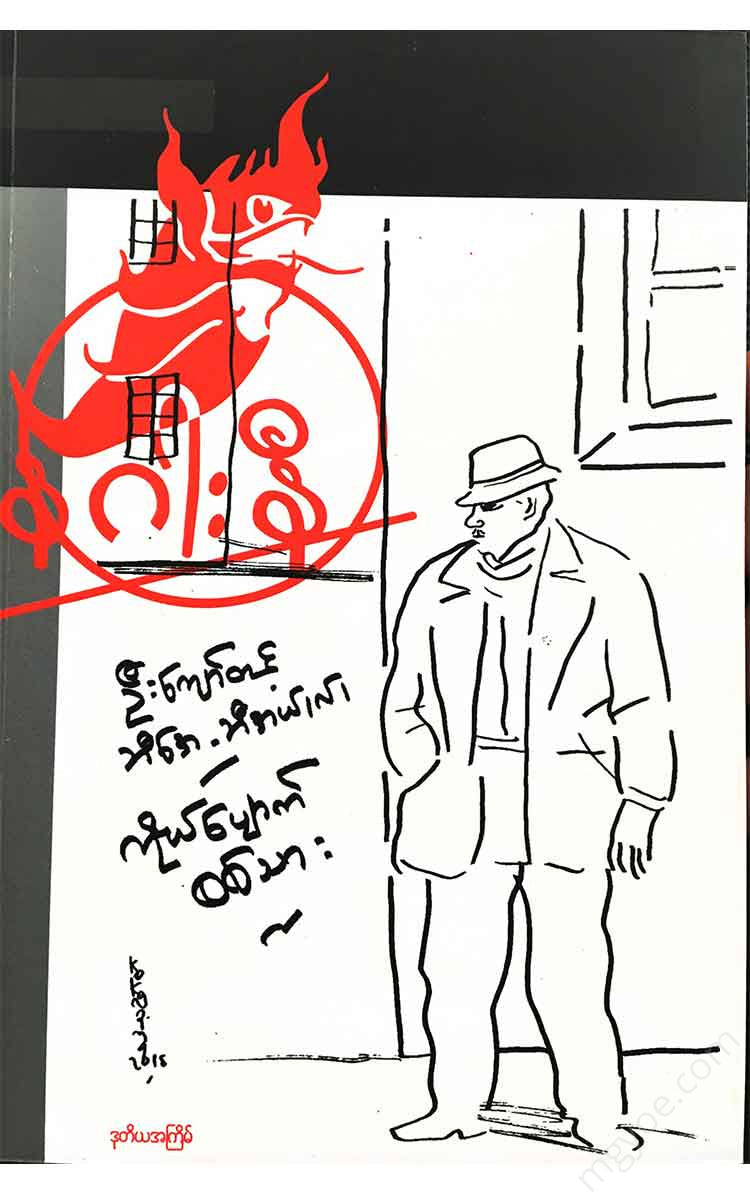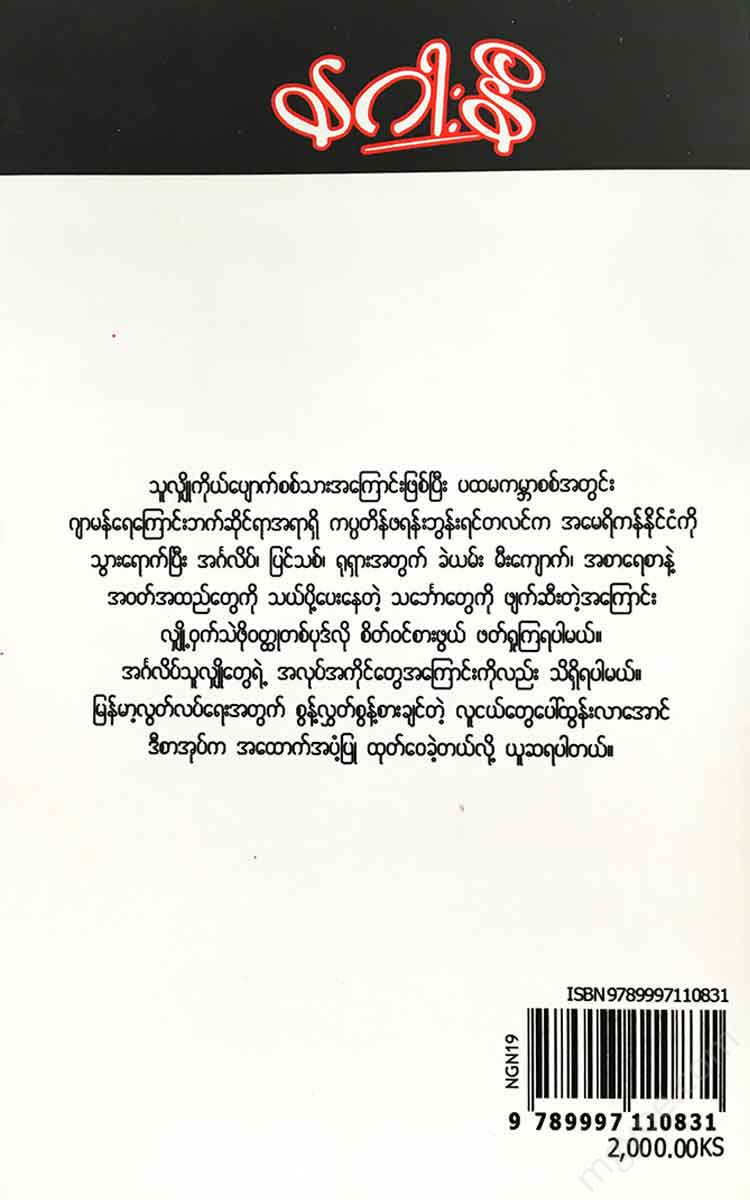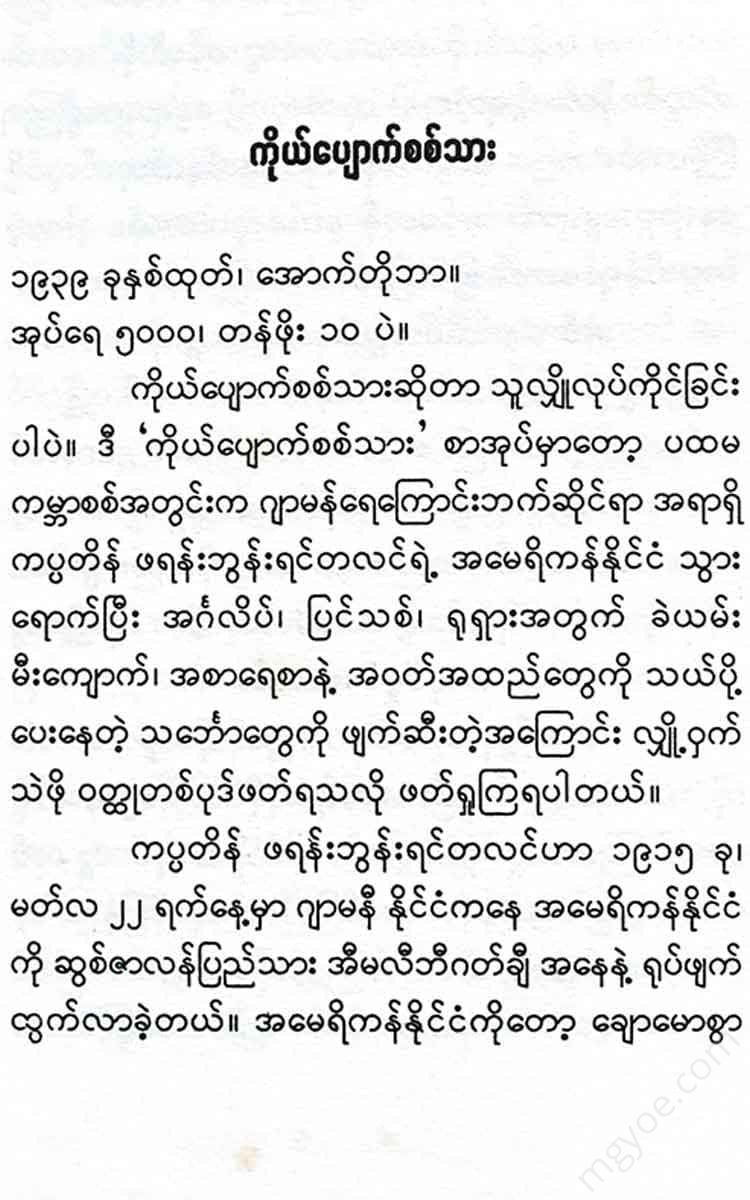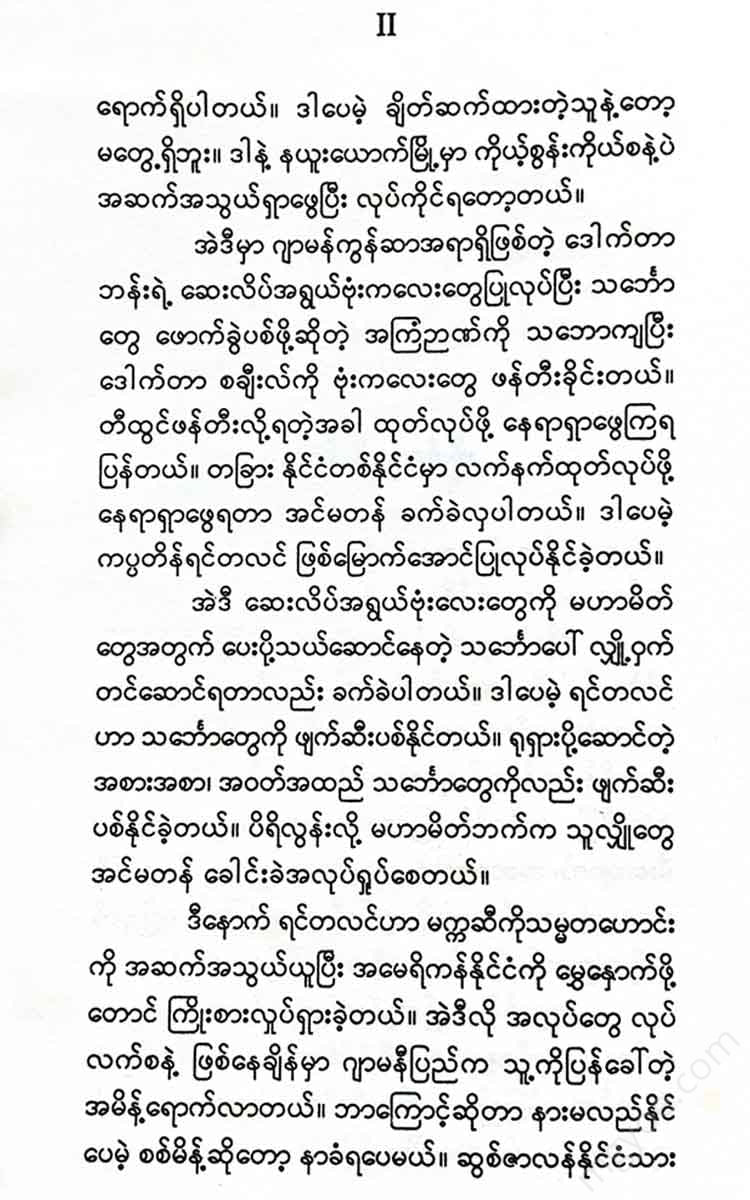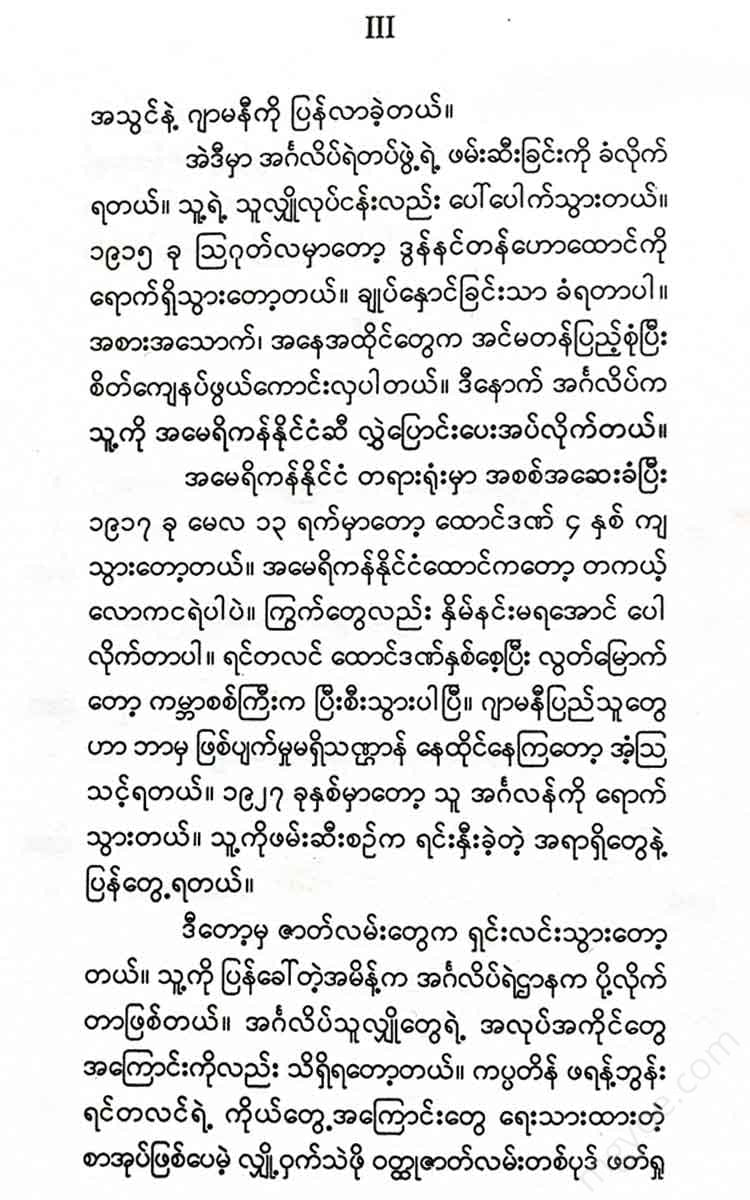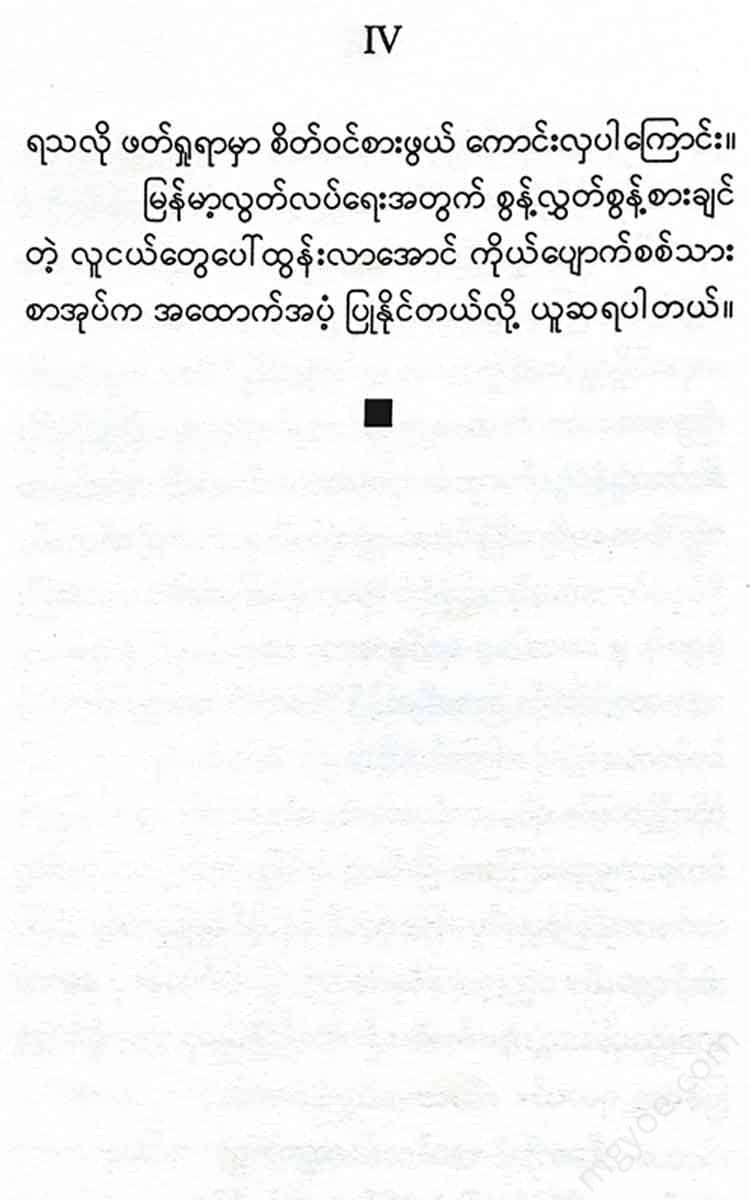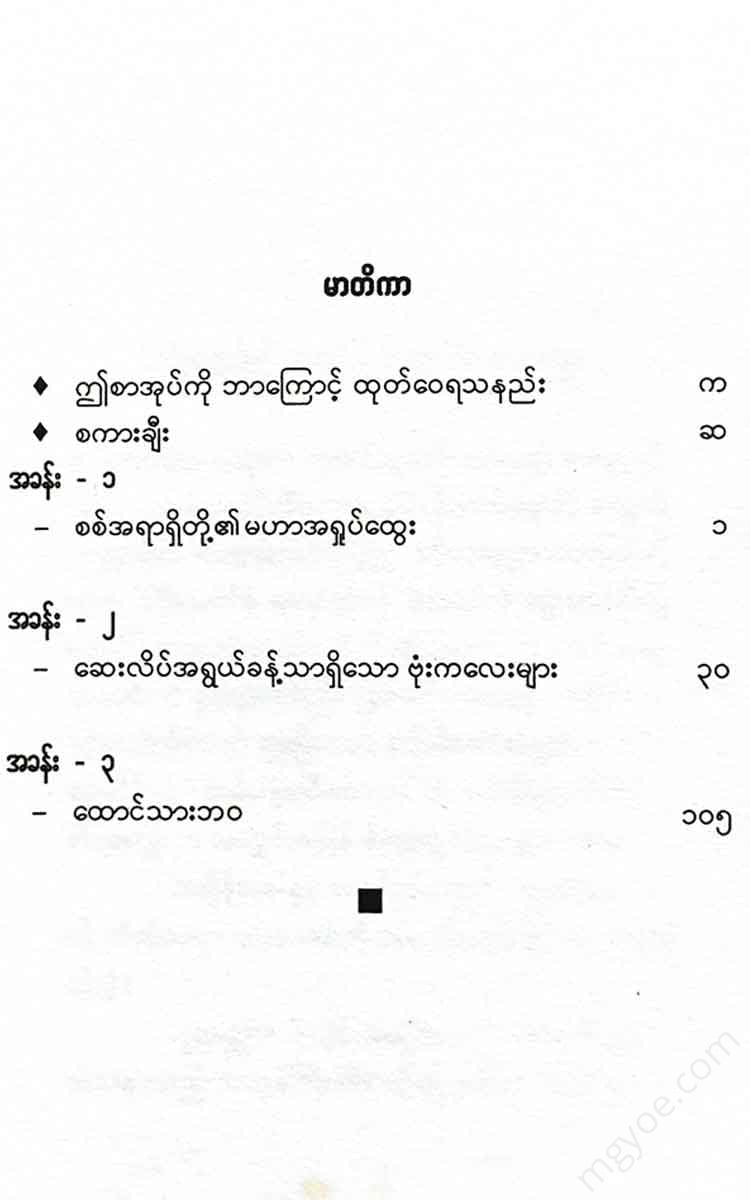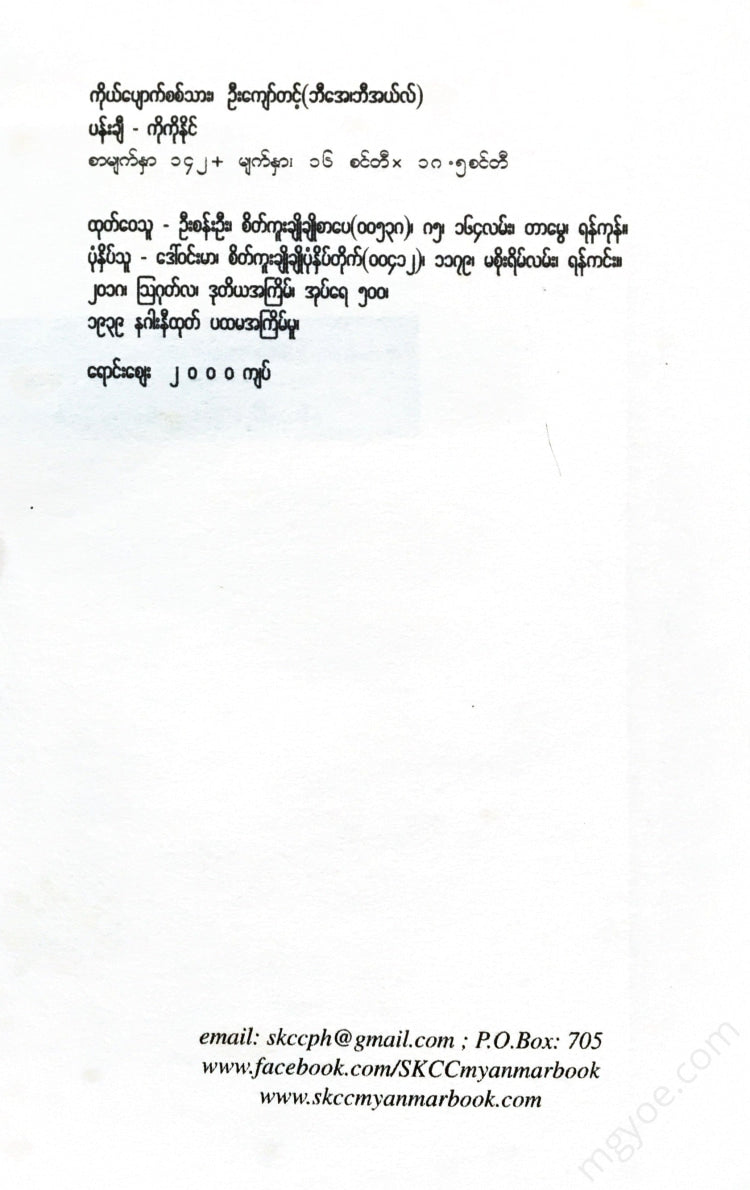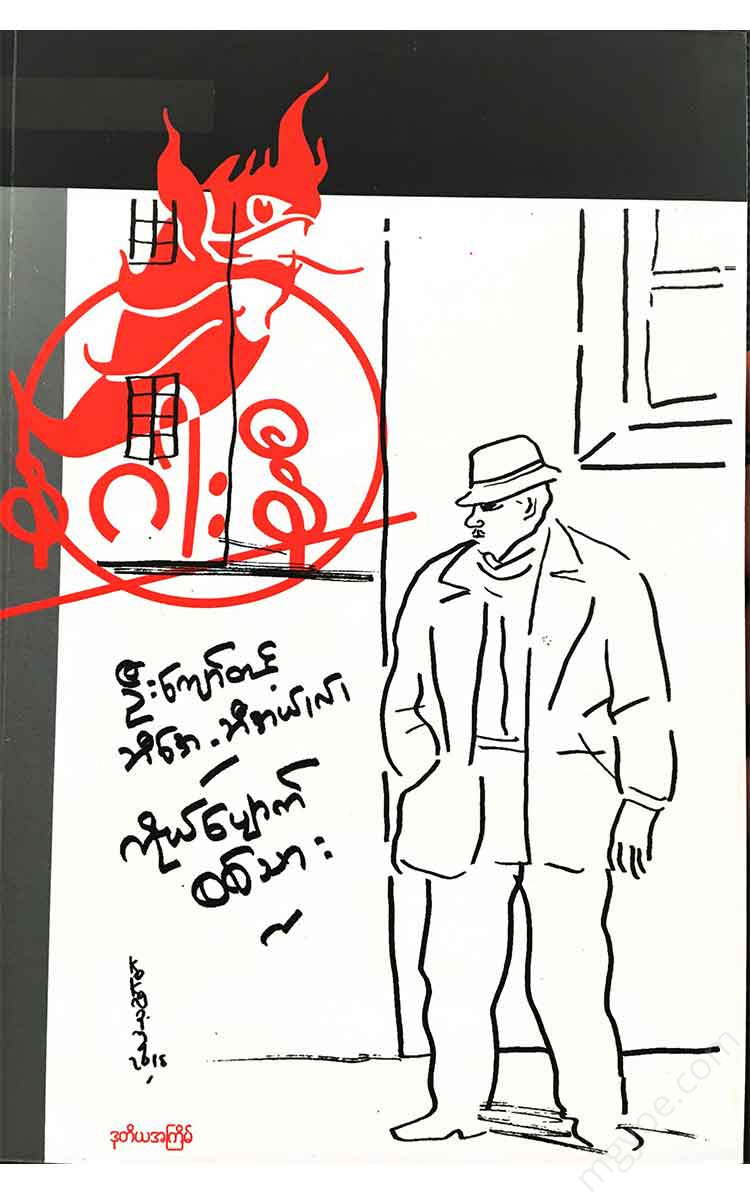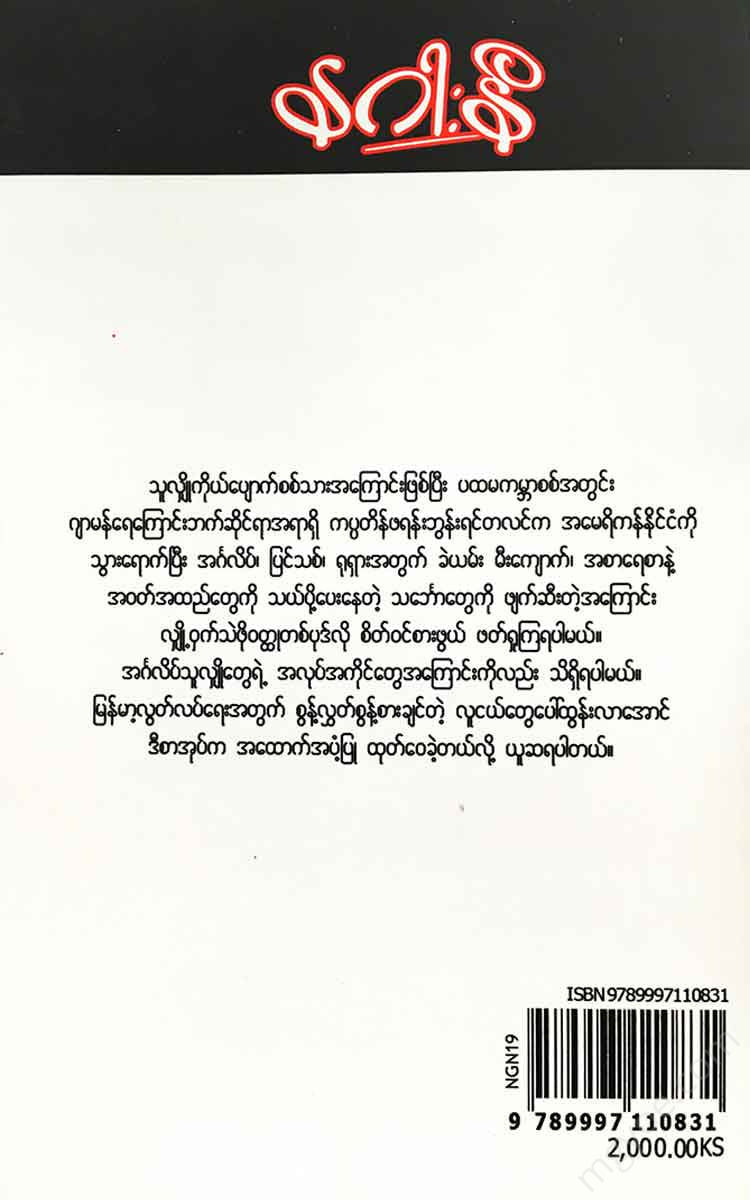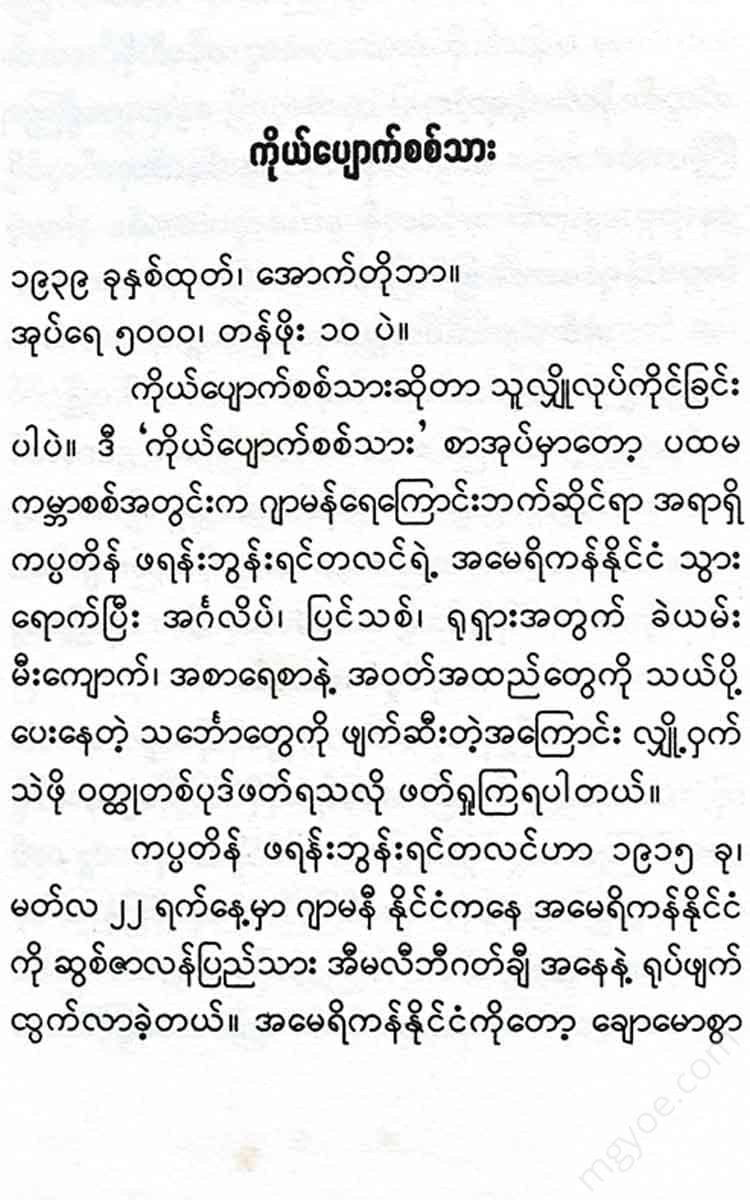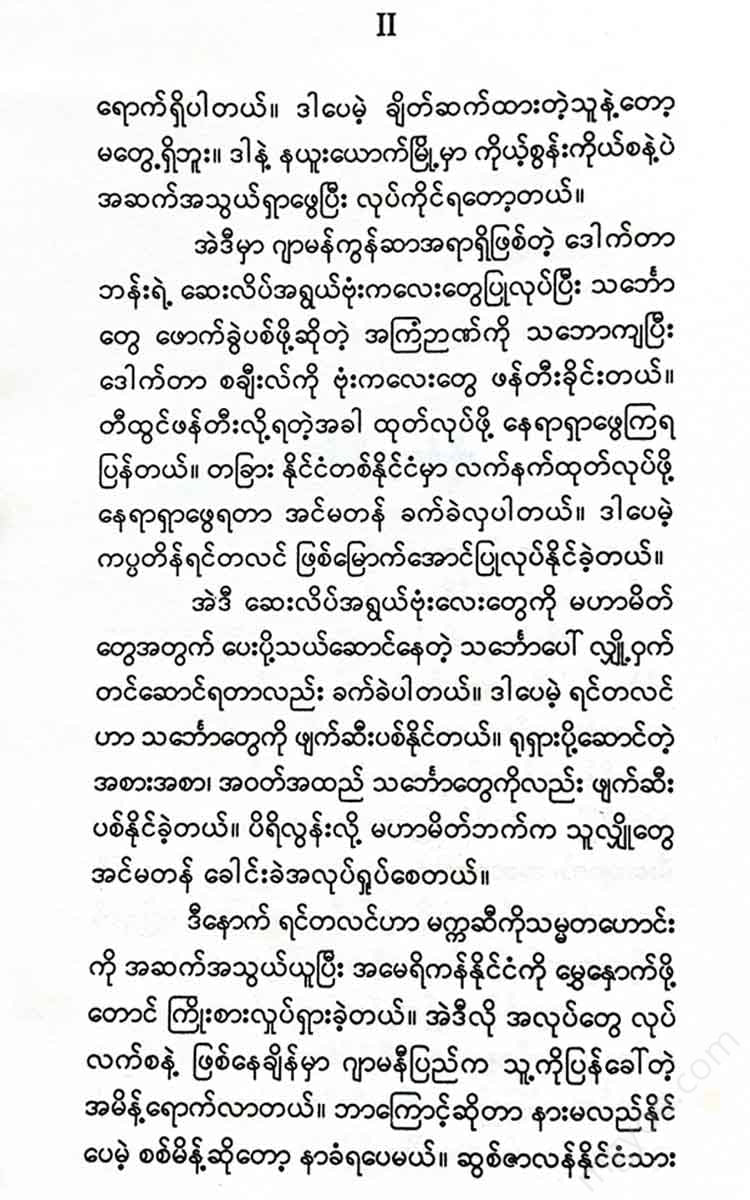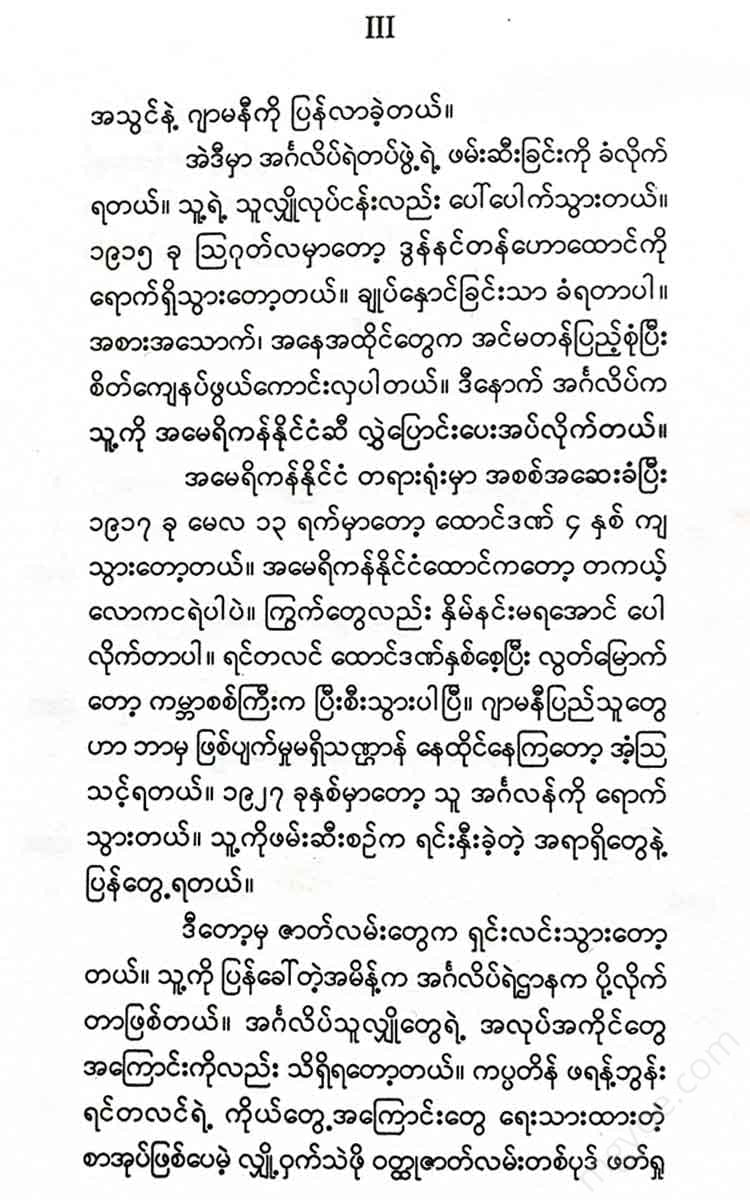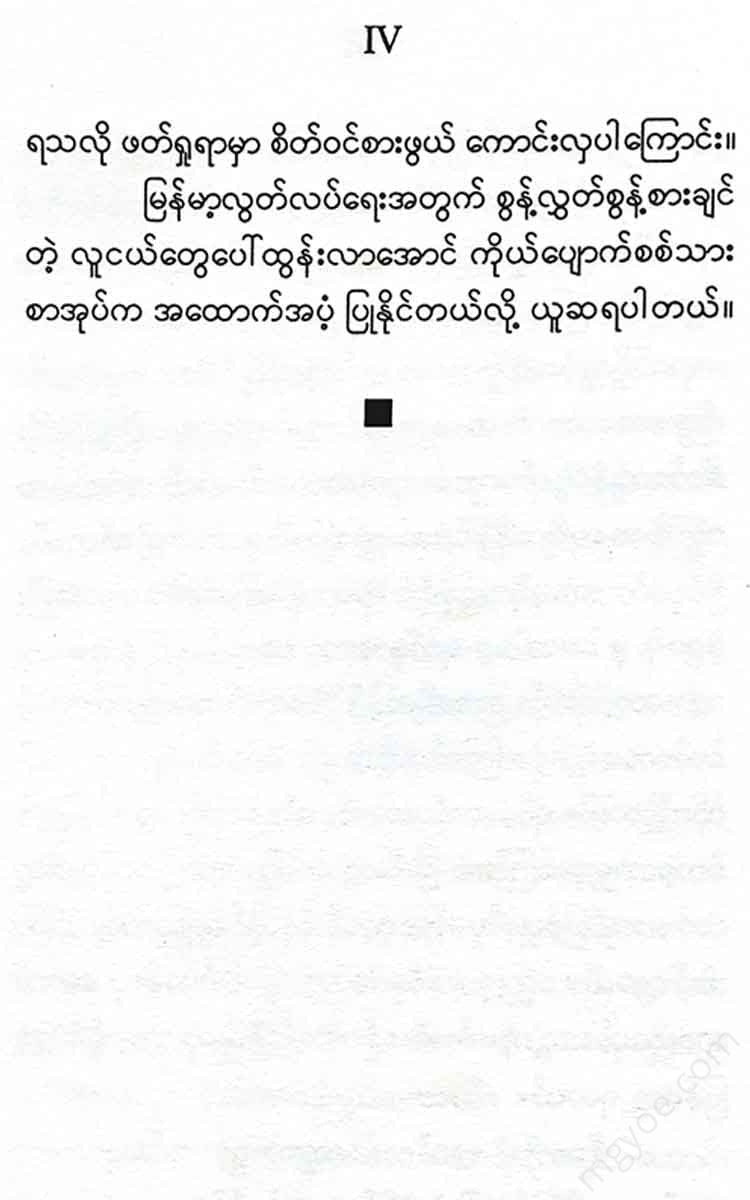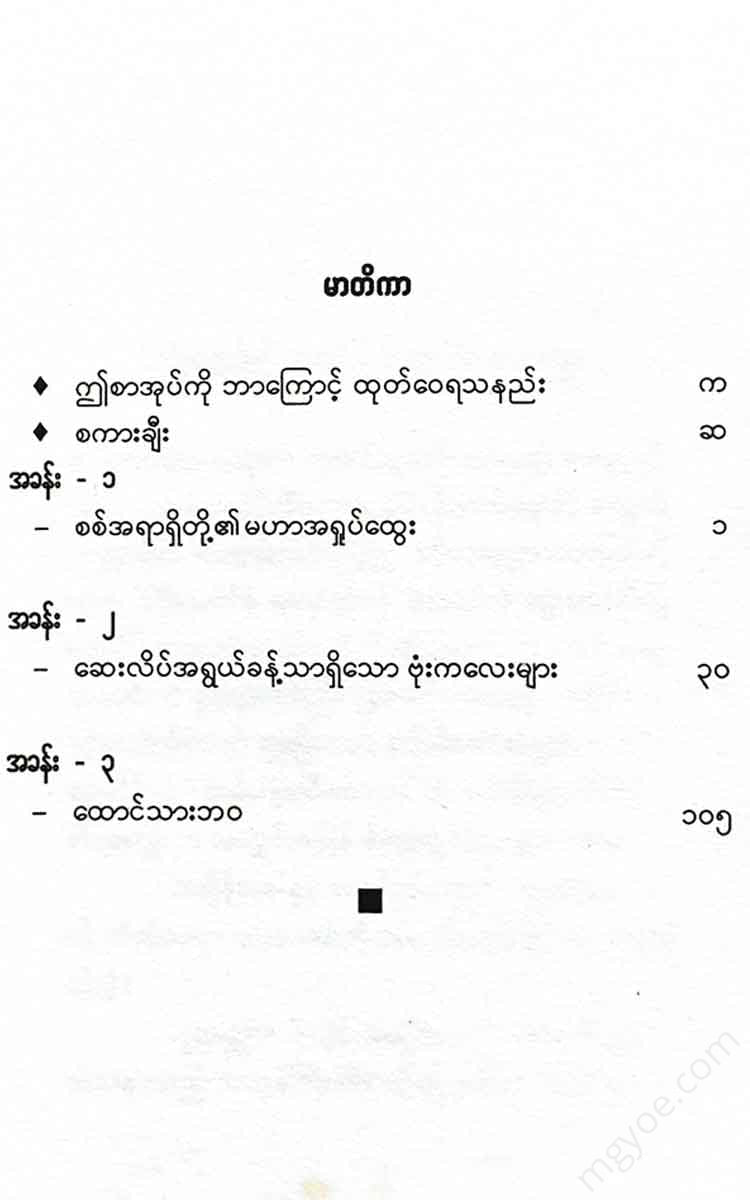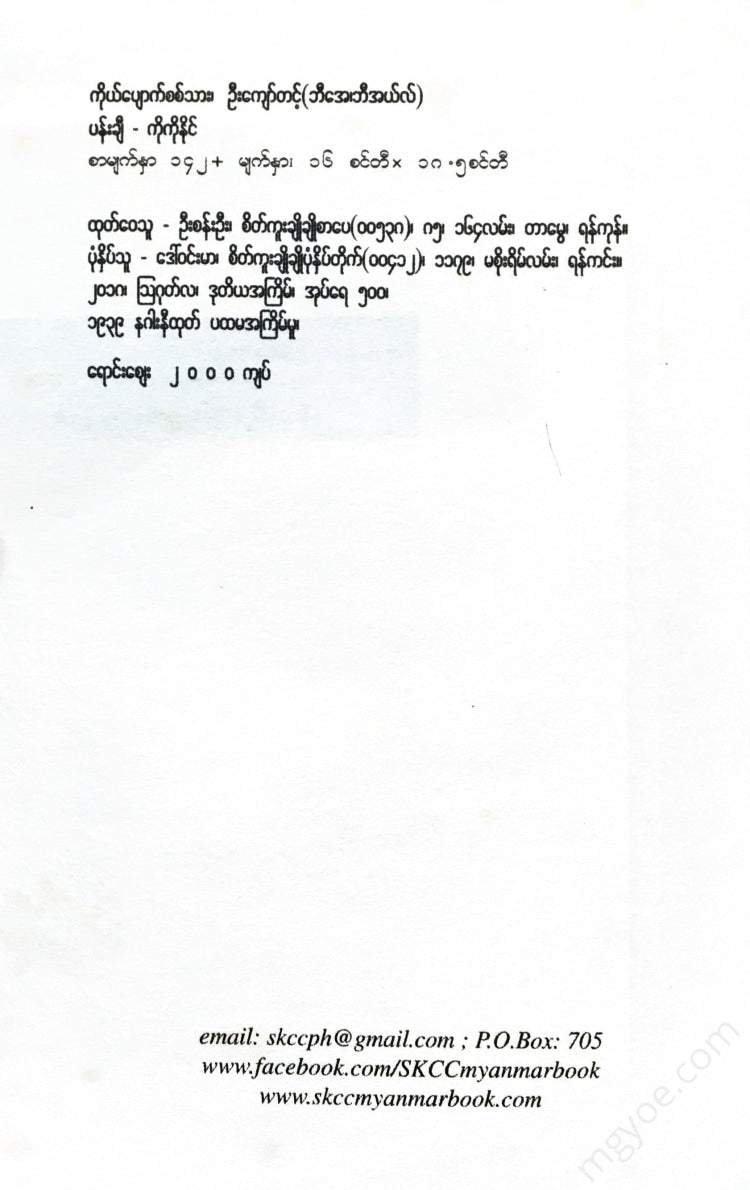စိတ်ကူးချိုချိုစာပေ
U Kyaw Tint (BABL) - The Invisible Soldier
U Kyaw Tint (BABL) - The Invisible Soldier
Couldn't load pickup availability
Chapter - 1
The great confusion of military officers
On August 4, 1914, the naval officers were gathered in a large office. Not a single one of them was smiling. Only signs of anxiety were evident on their faces. Here and there, a group of them were whispering. Now war was on. What orders would be issued from the war offices? To what places would we sail? What naval battles would we have to fight? Would Great Britain go to war with Germany? Would the German navy be able to defeat the British fleet? If Great Britain did not enter the war, there would be no need for naval battles. The land forces would be entirely responsible. But if Great Britain did enter the war, both land and sea would be busy. Now, we, the officers, were listening with bated breath to the declaration of war from Great Britain. The whole room was very quiet. No one uttered a word.
I went into my office, sat down at my desk, and tried to do the few remaining tasks. I couldn’t work. I wasn’t interested in work. I was just thinking about four things. Suddenly, I heard the door of the room open loudly, so I looked up and saw an office clerk urgently entering with a small letter in his hand. The letter was from my superior, and he was going to the embassy immediately to get an important order. I couldn’t wait a minute. I immediately got in my car and left for the embassy. The traffic police who were waiting on the main roads stopped all pedestrians, cars, and horse-drawn carriages so that my car could pass quickly. The traffic police had already known that I was coming.
I rushed into the main office. I stopped when I got inside. I saw the ambassador of Great Britain and the ambassador of the United States sitting side by side on a long bench. Their faces looked as if they had been caught in a trap. It was clear on their faces what kind of order I was to take. A minute later, Ha Vong-jung, the chief of press at the embassy, came in and handed me a sealed envelope. I paid my respects and immediately drove back to the naval office. The order I had brought stated that Great Britain was about to go to war with Germany. The English ambassador who had been at the embassy had come to deliver the declaration of war himself. From the moment I saw it, I knew that Germany and Great Britain were at war. In my mind, our German fleet was going to sail out immediately to meet the British fleet. Not at all. There was a slight delay. Some German officers thought that since the German king and the King of England were close relatives, there could be no real war. Britain was only entering the war in a pretense. They said that they would not really fight Germany. So the German fleet did not go to sea immediately, and so it was delayed.
The man in command of the German navy at that time was Bonaparte. There were other German officers who disliked him. The Kaiser's chancellor did not want Bonaparte to be commander of the navy. He told the Kaiser that he was too old to do his duty. Bonaparte did not want to see these officers face to face. It was very shameful for the superiors to be so hostile to each other when there was so much at stake. Wasn't it time for a reconciliation? As soon as Britain declared war, the entire German fleet under Bonaparte would have gone to sea. But now, because of the hostility between them, it was delayed a little. It was a pity that our navy was not as strong as the British navy. If we cannot attack the English coast suddenly, it will be difficult to win the war. Therefore, it is important to fight as soon as possible without dragging out the war. Meanwhile, the German navy is waiting for the British navy to start attacking. There is a sense of urgency in the minds of all our naval officers. We want to attack the enemy quickly and finish him off.
Two of our ships, the Gobin and the Breslau, were in the Mediterranean Sea, facing the English and French ships. If they were to flee, they would not be able to escape the enemy. So they suddenly entered the Italian port of Messina and took refuge. The German ships were in need of coal. If they did not get permission from the Italian Navy to load coal, they would have had difficulty. The German ships, thanks to the good persuasion of their commanders, finally got the coal they needed. They immediately set out for the Mediterranean and made a great journey to the Dardanelles. The English and French ships were following closely behind. However, the two German ships reached the Dardanelles 24 hours earlier. The ships could not enter the Dardanelles. However, the German ambassador in Constantinople declared the two ships Turkish warships. All the German officers on board the warships wore Turkish hats as a sign of respect for the Turkish king. They fired cannons from the ships to show their respect for the king. The name of the naval officer in charge of these ships was Sokchok.
The warships had safely reached the Dardanelles, but they were again facing difficulties in paying for their expenses. The Turks did not accept German banknotes. So the Admiralty sent a telegram to Berlin asking for the gold coins to be sent quickly. We were very happy to hear the good news that the warships had safely reached the Dardanelles, but when we read the telegram asking for the gold coins to be sent quickly, we were very confused. How could we get the necessary gold coins? My superior officer was a scoundrel.
